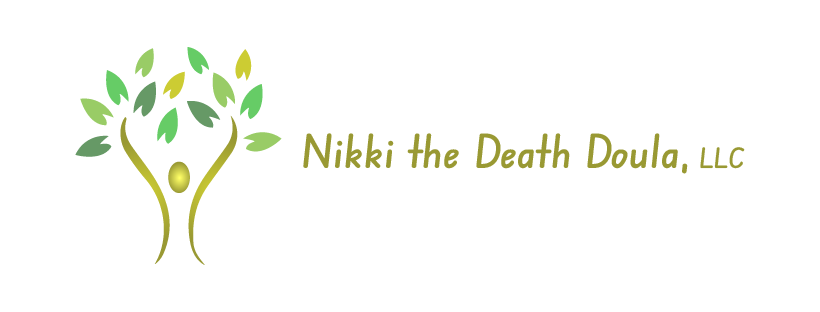Coping with a Terminal Diagnosis: How a Death Doula Can Help
Few words land as heavily as “terminal diagnosis.” It can feel like the ground opens up right underneath you. And now you’re falling with fear, confusion, and a hundred unanswered questions. Whether it’s your diagnosis or a loved one’s, the news shakes your sense of stability and sparks an avalanche of emotions; grief, anger, disbelief, even relief in some cases (yes, that’s normal too!).
So, how do you even begin to cope with something this enormous? And where does a death doula fit into the picture?
Facing the Emotional Rollercoaster
A terminal diagnosis brings an inevitable mix of emotions. Some days, you may feel strong and accepting and ready to fight! Other days, you might rage against the unfairness of it all. Maybe you want to plan every last detail, or avoid the topic altogether. None of these responses are wrong. They’re part of the messy, nonlinear way we process mortality.
Here’s where a death doula can come in: we don’t come in with a checklist of how you “should” feel. Instead, we hold space for whatever is true for you in the moment. Some days that might mean sitting with you in silence. Other days it could mean listening to your fears, or helping you put words to feelings you didn’t know you had. Having someone outside the swirl of family dynamics can create a safe harbor where your emotions don’t have to be filtered or softened.
Sorting Through Practical Decisions
Alongside the emotional weight comes the mountain of logistics. Medical appointments, treatment options, advance directives, financial planning, funeral arrangements, and even managing all the people who want to come say their goodbyes. It can all feel crushing. A death doula doesn’t replace doctors, lawyers, or therapists, but we bridge the gaps.
We can walk you through what documents you might want in place, help you communicate your wishes to loved ones, or sit beside you as you draft an advance directive. Think of us as part project manager, part guide: someone to help untangle the knot of “to-dos” so that you and your family can focus on what matters most.
Nurturing Relationships
Terminal illness changes family dynamics. (and boy howdy does it ever) Sometimes it draws people closer; other times, it stirs up old wounds. A death doula can act as a gentle mediator facilitating those tricky conversations, helping loved ones share memories, and encouraging everyone to say what often goes unsaid. These moments can create connection and closure that might otherwise get lost in the chaos of appointments and decline.
We can also encourage creative ways to strengthen bonds: recording legacy projects like letters, videos, or memory books; creating rituals of comfort; or simply carving out intentional time for meaningful conversations.
Supporting Daily Life and Self-Care
Coping isn’t only about the big milestones. It’s also about the day-to-day. Simple things like eating well, resting, or finding moments of joy, often fall to the bottom of the list when a terminal diagnosis takes center stage. A death doula can remind you (and your caregivers) that tending to daily needs isn’t indulgent; it’s essential.
We may suggest small practices like guided relaxation, journaling, or even something as ordinary as sitting outside in the sun for ten minutes. These small acts can become anchors in the storm, giving you moments of presence and peace.
Honoring Your Wishes and Values
Perhaps the most powerful role a death doula plays is making sure your voice stays central. When illness threatens to take away control, it can feel like your autonomy is slipping through your fingers. A doula helps you reclaim that.
Do you want a quiet home death surrounded by family? Do you want music playing, candles lit, or even a football game on in the background? Do you want your memorial to feel like a solemn service or a joyful celebration? These preferences matter. A doula makes sure they’re spoken aloud, documented, and honored.
The Gift of Presence
At the heart of it, death doulas are companions. We’re not here to fix or cure, we’re here to walk alongside. To hold your hand when things feel unbearable, to laugh with you when humor sneaks in, and to remind you that you’re more than a diagnosis. You are still a whole person with stories, choices, and dignity.
Final Thoughts
Coping with a terminal diagnosis will never be easy. It’s heavy, painful, and often unfair. But it doesn’t have to be navigated alone. A death doula can help shoulder some of the weight. Emotionally, practically, and spiritually, so that you and your loved ones can focus less on fear and more on living fully with the time that remains.
Because in the end, coping isn’t just about dying well. It’s about living well, right up until the last breath.
